Top Influential Criminologists Today
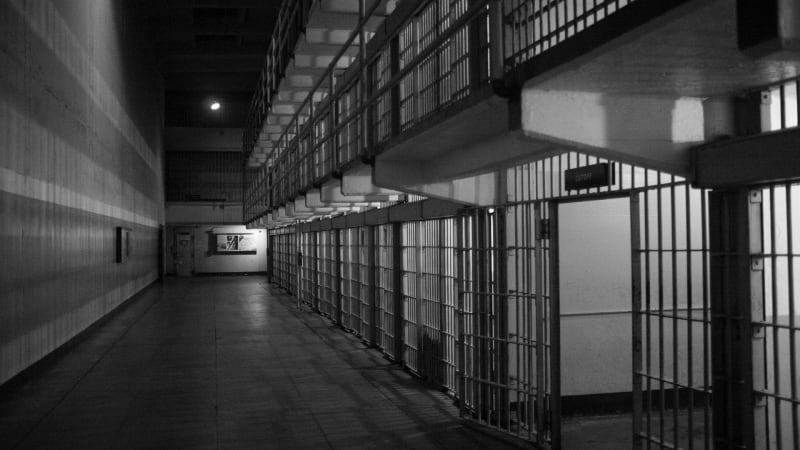
Criminology is the scientific study of criminal behavior, law enforcement, and crime. In this way, it differs from criminal justice, which focuses on how the legal system handles crime, via a system of enforcement, investigation, trial, and punishment. Scholars over time and still today have advanced our collective understanding of policing, rehabilitation, crime prevention, and the factors contributing to the emergence and perpetuation of criminality. Read on to discover individuals who are considered top influential academics in the field of criminology and their research efforts ongoing today.
Early efforts at prevention or deterrence from criminal behavior relied on a system of crime and retaliation - the “eye for an eye” approach. This retaliation, absent a system codifying appropriate punishments, often resulted in acts of revenge disproportionate to the original offenses. The Code of Hammurabi (c. 1754 BC), one of the first written legal codes, is believed to be one of the earliest written examples of structured, organized governance.
Methods at deterrence and prevention continue to evolve today, informed by the tireless work of scientists who provide their evidence-based insights. Their research and experimentation help law enforcement officers and criminal justice professionals to be more effective in their rehabilitation, punishment, and prevention efforts.
In what follows, we look at influential criminologists over the last decade. Based on our ranking methodology, these individuals have significantly impacted the academic discipline of criminal justice within 2010-2020. Influence can be produced in a variety of ways. Some have had revolutionary ideas, some may have climbed by popularity, but all are academicians primarily working in criminology. Read more about our methodology.
Note: This isn’t simply a list of the most influential criminologist alive today. Here we are focused on the number of citations and web presence of scholars in the last 10 years. There are other highly influential scholars who simply haven’t been cited and talked about as much in the last 10 years, whereas some new faces have been making a splash in the news, speaking events, and publishing, publishing, publishing. Our AI is time sensitive. To find some of the big names you might have expected to see here, we encourage you to use our dynamic ranking system and check influence over the past 20 and 50 years.
Top Influential Criminologists 2010-2020
Want more? Discover influential anthropologists throughout history:Of All Time | Last 50 Years | Last 20 Years Note: The links above take you to rankings that dynamically change as our AI learns new things!
1.Lawrence W. Sherman
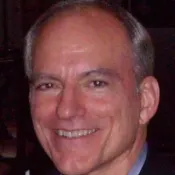
(1949 - )
Schenectady, New York, USA
Areas of Specialization: Experimental Criminology, Defiance Theory, Evidence-Based Policy
Lawrence W. Sherman was born in 1949 in Schenectady, New York. He graduated from Denison University with a B.A. in political science, before earning his M.A. in social science from the University of Chicago. He went on to earn his diploma in criminology from University of Cambridge and his M.A. and Ph.D in sociology from Yale University.
Sherman has conducted extensive research into restorative justice, experimental criminology, and crime prevention. He has served as co-director of a program performing longitudinal experiments involving over 2000 offenders and crime victims, seeking to better understand restorative justice policies and approaches. He has formerly served as president of the International Society of Criminology, the Academy of Experimental Criminology, the American Academy of Political and Social Science, and the American Society of Criminology. He has received multiple honors in the field of criminology, including the American Sociological Society’s Award for Distinguished Scholarship in Crime, Law and Deviance, the Campbell Collaboration’s Robert Boruch Award, and the Academy of Experimental Criminology’s Joan McCord Award.
He is the founding co-chair of criminology’s highest honor, the Stockholm Prize in Criminology. Sherman was Former Department Chair and Distinguished University Professor at the University of Maryland. He is currecntly the Director of the Cambridge Police Executive Programme and Director of Research for the Jerry Lee Centre for Experimental Criminology at the University of Cambridge.
2.David Weisburd
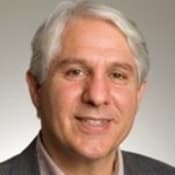
(1954 - )
Brooklyn, New York, USA
Areas of Specialization: Police Innovation, Geography of Crime, Experimental Criminology, White Collar Crime
David Weisburd was born in 1954 in Brooklyn, New York. He received his B.A. from Brandeis University, and an M.A., an M.Phil, and a Ph.D in sociology from Yale University. Weisburd currently hold joint appointments as the Walter E. Meyer Professor of Law and Criminal Justice at the Hebrew University Faculty of Law in Jerusalem, Executive Director of the Center for Evidence-Based Crime Policy, and Distinguished Professor at George Mason University.
A prolific writer, Weisburd has published hundreds of articles and more than 30 books. He has conducted meaningful research into white-collar crime, as well as the micro-geography of crime. He has done numerous longitudinal studies exploring frequent locations of crime in cities such as Seattle, Tel Aviv, and Jersey City, New Jersey. He has advocated for more intentional distribution of police coverage in areas of criminal hot spots. He also found that white collar criminals tended to fit a common profile and that the crimes were generally mundane.
For his work, Weisburd has been honored numerous times. He was awarded the Stockholm Prize in Criminology (the highest honor in the field), the Edwin H. Sutherland Award from the American Society of Criminology, and most recently, the August Vollmer Award. In 2005, he was selected to be an honorary fellow of the American Society of Criminology.
3.Christopher Uggen

(1964 - )
Areas of Specialization: Crime, Law and Justice, Life Course, Inequality, Methods, Policy
Christopher Uggen was born in 1964. He earned his PhD from the University of Wisconsin–Madison in 1995. Uggen has been a prominent sociologist and criminologist for decades and served as University of Minnesota Sociology Department chair from 2006-2012.
He is best known for his work researching felon disenfranchisement and employment and crime. His inquiries into criminal justice, punishment, recidivism, reentry, discrimination and exclusion. In his 2003 article, “Democratic Contraction: Political Consequences of Felon Disenfranchisement in the United States”, published with his colleague, Jeff Manza, drew attention to the impacts of ongoing felon voting restrictions after time served. In Locked Out: Felon Disenfranchisement and American Democracy, they revealed surprising conclusions about how allowing felons to vote seems to be related to a reduction in future criminal offenses.
Uggen continues this work today, advocating for a reexamination of implications of race in criminal justice, employer discrimination against felons, effects of mass incarceration, and the secondary consequences of lasting criminal records. Recognizing the inequalities that exist and suggesting ways of handling justice in ways that allow former felons a way out. He is a Regents Professor and Distinguished McKnight Professor at the University of Minnesota. In 2016, he was awarded the Hindelang Speaker Award by the SUNY Albany for his contributions to sociology and criminology.
4.Jerzy Sarnecki
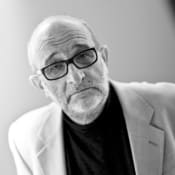
(1947 - )
Areas of Specialization: Network Theory, Social Reactions to Crime, Socioeconomics of Crime
Jerzy Sarnecki is a professor of criminology at Stockholm University. He studied geodesy as an undergraduate before earning a Ph.D. in sociology from Stockholm University. During his schooling, he worked at youth recreation centres, which led to his later work as a researcher of juvenile delinquency for the Swedish National Council for Crime Prevention.
He served as Division Head at the Swedish National Council for Crime Prevention until he became a professor of criminology at Stockholm University. He has intermittently served as head of the Department of Criminology at Stockholm University, a member of the Scientific Commission of the International Society of Criminology, and vice-president of the Scandinavian Research Council for Criminology.
He has been president of the Scandinavian Research Council for Criminology since 2004 and a member of the Board of Directors of the International Society of Criminology since 2005. He is also a frequently sought expert for Swedish media, with appearances on Dagens Eko, Radio P4, and Godmorgon, varlden!.
He has recently been reexamining his positions on socioeconomics of crime, noting inconsistencies in the reporting of rape in Sweden based on immigration status which may be attributable to socioeconomics rather than cultural or assimilation-issues. His research into the matter is ongoing.
5.Richard Rosenfeld
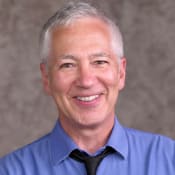
(1948 - )
Areas of Specialization: Social Sources of Violent Crime, Crime Control Policy, Crime Trends
Richard Rosenfeld was born in 1948. He earned his B.A. and his Ph.D in sociology from the University of Oregon. He has been honored by his colleagues on several occasions. He was selected as a Fulbright Scholar in 2016 and received the Edwin H. Sutherland Award from the American Society of Criminology in 2017.
Rosenfeld’s research has concentrated on crime control, criminal justice policy, the social sources of crime and the statistical trends of criminal justice in the United States. He has examined violent crime in St.Louis, finding geographic areas with higher concentrations of violent crime, and evaluating the correlations between these areas and socioeconomic conditions. He has previously served as the president of the American Society of Criminology and on the National Academy of Science’s Committee on Law and Justice. He has published multiple articles and books, including Economics and Youth Violence: Crime, Disadvantage, and Community.
Today, he sits on the Science Advisory Board of the Office of Justice Programs, U.S. Department of Justice and has been the Criminologist in Residence with the St. Louis Metropolitan Police Department since 2012. He became a Founder’s Professor of Criminology and Criminal Justice at the University of Missouri - St. Louis in 2014 and is a fellow of the American Society of Criminology.
6.Kevin Beaver
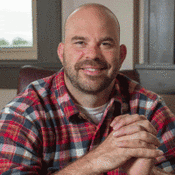
(1977 - )
Areas of Specialization: Biosocial Criminology, Genetic/Biological Correlates of Offending, Life-Course/Developmental Criminology, Stability of Violent Behaviors
Kevin Beaver is the Judith Rich Harris Professor of Criminology at Florida State University’s College of Criminology and Criminal Justice, director of the FSU Distance Learning Program, the editor-in-chief of the Journal of Drug Issues, and an expert in biosocial criminology. He earned a B.A. in sociology from Ohio University, and an M.S. and Ph.D. in criminal justice from the University of Cincinnati.
With a focus on biosocial markers and antisocial behaviors, Beaver has worked to better understand how behavioral and molecular genetics influence later criminality and delinquent behaviors. With more than 150 articles and books to his credit, he has contributed critical insights to our understanding of genetics and behavior. He has published multiple editions of Biosocial Criminology: A Primer, Criminological Theory: A Life-Course Approach, and Why Crime? An Interdisciplinary Approach to Explaining Criminal Behavior.
He is credited with the identification of a rare variation of the MAOA gene that correlates to violent behavior and weapons use among males. He teaches courses in Alternatives to Incarceration, Genes and Crime, Life-Course Criminology, Religion and Crime, and Victimology, among many others.
His most recently published book is Quantitative and Behavioral Genetics for Social Sciences, which was written with colleague J.C. Barnes, and published in 2018.
7.Lorraine Mazerolle
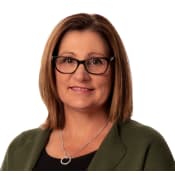
(1964 - )
Areas of Specialization: Problem-Oriented Policing, Civil Remedies, Third-Party Policing
Lorraine Mazerolle is chief investigator for the Australian Research Council’s Centre of Excellence for Children and Families over the Life Course, editor-in-chief of the Journal of Experimental Criminology, affiliate professor at the Institute for Social Science Research, and professor at the School of Social Science at the University of Queensland. She earned a Ph.D. from Rutgers University.
Her research has focused on drug law enforcement, experimental criminology, policing and crime prevention. She has authored or co-authored a number of works on the topic, including Environmental Criminology and Crime Analysis, Policing Places with Drug Problems and Procedural Justice and Legitimacy in Policing.
She has been honored with the Jerry Lee Lifetime Achievement Award by the ASC Division of Experimental Criminology, the Partners in Research Excellence Award from the University of Queensland, the ASC Sellin-Glueck Award, the CEBCP Distinguished Achievement Award for the Center for Evidence-Based Crime Policy at George Mason University and the ASC Division of International Criminology Freda Adler Distinguished Scholar Award.
Mazerolle is an elected Fellow of the Academy of Experimental Criminology, American Society of Criminology, and the Academy of the Social Sciences in Australia. Her work continues today, as she wins competitive research grants to study community policing, police technologies and civil remedies.
8.Paul Rock
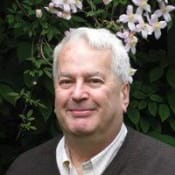
( - )
Areas of Specialization: Public Criminology, Victimology
Paul Rock is an Emeritus Professor of Social Institutions at the London School of Economics, and a founder and member of the National Deviancy Conference. He earned his first degree at the London School of Economics before earning a D.Phil. from Nuffield College at the University of Oxford. His dissertation explored the morality of a career in debt collection.
He is best known as a professional scholar of public criminology, which brings academic criminological research into public policy and interventions. By combining the theoretical and empirical and using that information to inform policy and decision-making approaches, he has been able to shed new insights. He has written extensively on criminological theory and victimology, with books such as Constructing Victims Rights and Victims, Policy-Making and Criminological Theory. His book, Understanding Deviance, which he co-wrote with colleague David Downes, is now in its 6th edition.
He is a former editor of the British Journal of Sociology and review editor of the British Journal of Criminology. He is a member of the editorial boards of Oxford University Press’s Clarendon Criminology Series and co-editor of Sage’s Compact Criminology series. He has been a fellow of the Center for the Advanced Study of the Behavioral Sciences and REGNET, at the Australian National University.
9.Daniel Nagin
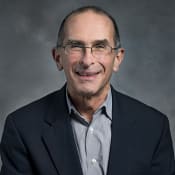
(1948 - )
Areas of Specialization: Criminology, Deterrence, Statistics
Daniel Nagin is the Teresa H. John Heinz III University Professor of Public Policy and Statistics at Carnegie Mellon University’s Heinz College, a statistician and criminologist. He earned a B.S. in administrative and managerial sciences and an M.S. in industrial administration from Carnegie Mellon University, and a Ph.D. from Heinz College.
He is best known for his research into the deterrence effect of criminal punishments, most notable the deterrence value of capital punishment. His work has also yielded insights into the statistical methods used to analyze and understand longitudinal data on criminality over time.
In 2014, he was awarded the Stockholm Prize in Criminology and in 2017 he won the NAS Award for Scientific Reviewing. Nagin has also provided important leadership in the field, as the Deputy Secretary for Fiscal Policy and Analysis for the Pennsylvania Department of Revenue, research program area director of Carnegie Mellon University’s National Consortium on Violence Research, and in his teaching roles at Carnegie Mellon University’s Heinz College.
Today, he is the co-editor of the criminology journal, Criminology and Public Policy, and an elected Fellow of the American Association for the Advancement of Science, the American Academy of Political and Social Science, and the American Society of Criminology. He is the author of Group Based Modeling of Development.
10.Daniel Mears
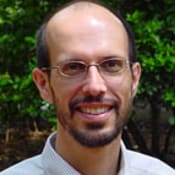
( - )
Areas of Specialization: Juvenile and Criminal Justice Policy, Crime Theory, Supermax Prisons
Daniel Mears earned a B.A. from Haverford College, and an M.A and Ph.D from the University of Texas at Austin. While at the University of Texas at Austin, he was nominated for the school’s Outstanding Dissertation Award and was selected for the national honor society.
He most recently published an article in the Journal of Research in Crime and Delinquency, titled, “Progressively Tougher Sanctioning and Recidivism: Assessing the Effects of Different Types of Sanctions”, as well as a book titled, Out-of-Control Criminal Justice: The Systems Improvement Solution for More Safety, Justice, Accountability, and Efficiency. His research has explored criminal justice policy involving juveniles, immigrants, and supermax prisons. He has twice been awarded the Academy of Criminal Justice Science’s Outstanding Book Award. His expertise has been sought by organizations and agencies such as the National Institute of Justice, the Office of Juvenile Justice and Delinquency Prevention and the William and Flora Hewlett Foundation.
Mears is now the Mark C. Stafford Professor of Criminology at the Florida State University College of Criminology & Criminal Justice, and a fellow of the American Society of Criminology. He is a frequent expert called upon by such news organizations such as ABC News, The Washington Post, The New York Times, and USA Today.
11.Nicole Westmarland

(1977 - )
Darlington, County Durham, England
Areas of Specialization: Male Violence Against Women, Sexual Violence
Nicole Westmarland is an activist and professor of criminology for Durham University. She is the organizer of the first North East Conference on Sexual Violence, which has been held annually since 2007 and now coincides with the International Day for the Elimination of Violence Against Women. She earned a B.Sc. in psychology and women’s studies from the Teesside University, and an M.A. in women’s studies and a Ph.D. in social policy and social work from the University of York.
She has been active in feminist organizations dedicated to the protection of women from domestic violence and prostitution. In the early years of her career, she co-edited two important volumes with colleague Geetanjali Gangoli, International Approaches to Prostitution: Law and Policy in Europe and Asia and International Approaches to Rape. These volumes explored cultural and social attitudes, approaches and criminalization in countries throughout the world. Her research has provided valuable insights into the way that authorities respond to complaints of rape and the effectiveness of community domestic violence perpetrator programs.
Westmarland has authored many reports on sexual violence, including “Has anything changed? Results of a comparative study (1977-2010) on opinions of rape” and “Women’s views on the policing of rape, domestic violence and stalking within the Cleveland Police area.”
12.Alex Piquero
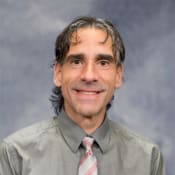
(1970 - )
Areas of Specialization: Criminal Careers, Crime Prevention, Criminological Theory
Alex Piquero is Professor and Chair of the Department of Sociology and Arts & Sciences Distinguished Scholar the University of Miami. Piquero additionally holds several other academic appointments including: Professor of Criminology at Monash University in Melbourne, Australia; Adjunct Professor in the Griffith Criminology Institute, Griffith University; Life Course Centre Fellow, University of Queensland; and Fellow of the University of Cincinnati Corrections Institute. Prior to joining the University of Miami, Piquero was the Ashbel Smith Professor of Criminology and Associate Dean for Graduate Programs in the School of Economic, Political and Policy Sciences for the University of Cincinnati. He has ranked as #1 criminologist in the world in terms of publication since 1996. He earned a B.A., an M.A. and a Ph.D. in criminology and criminal justice from the University of Maryland, College Park.
Piquero has focused his research on correlations between malnutrition and violence. He has collaborated on books such as the Handbook of Quantitative Criminology and a study finding that arrest rates among National Football League players was statistically lower than that of the rest of the American public within that age range.
As a member of more than a dozen editorial boards, he has considerable influence in the field. He spent five years as the co-editor of the Journal of Quantitative Criminology. He was named to the Office of Justice Programs Science Advisory Board by United States Attorney General Eric Holder in 2015. He has taught at Florida State University, the University of Maryland, the John Jay College of Criminal Justice and the University of Texas at Dallas.
He is married to another highly respected criminologist, Nicole Leeper Piquero.
See our Interview with Alex Piquero
13.Thomas Blomberg

( - )
Areas of Specialization: Criminology Research, Delinquency, Education and Crime Desistance, Penology and Social Control, Victim Services
Thomas Blomberg is a criminologist, Dean and Sheldon L. Messinger Professor of Criminology at the Florida State University College of Criminology and Criminal Justice, and the Executive Director or the Center for Criminology and Public Policy Research. He earned a B.A. in sociology, and an M.S. and Ph.D. in criminology from the University of California, Berkeley.
Blomberg has diverse research interests. He has studied ways to effectively leverage research knowledge to inform public policy, and topics such as elderly financial fraud, juvenile offenders who are incarcerated and later reintegrated, cognition turning points, victim services, and corrections reform.
He has been the principal investigator for numerous grant-funded research initiatives, including the Juvenile Justice Educational Enhancement Program, The Juvenile Justice No Child Left Behind Collaboration Project, and the Domestic Violence Homicide Prevention Program in Palm Beach County.
Blomberg has also been recognized with several teaching awards from Florida State University, for whom he has been teaching in various capacities since 1973. He is the co-author and author of a large body of scholarly work, including his upcoming work, Financial Exploitation of Aging Adults and his first book, published in 1978, Social Control and the Proliferation of Juvenile Court Services.
14.Henry Lee
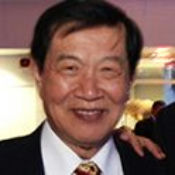
( - )
Areas of Specialization: Forensic Science
Henry Lee is regarded as one of the most influential forensic scientists in the world. He is the founder of the Henry C. Lee Institute of Forensic Science at the University of New Haven. He earned a degree in Police Science from Central Police University in Taiwan. He became the youngest police captain in Taiwanese history at the age of 22.
He went on to earn a B.S. in forensic science from John Jay College of Criminal Justice before earning an M.S. and Ph.D. from New York University. He has worked a number of high-profile murder cases, including the JonBenet Ramsey murder, the Helle Crafts woodchipper murder, and the investigations of O.J. Simpson and Scott Peterson. He has also provided consultation for the investigation for the Washington, D.C. sniper shootings and the suicide of Deputy White House Counsel Vincent Foster.
Lee was previously Chief Emeritus for the Connecticut State Police, Commissioner of Public Safety for Connecticut, and the state Chief Criminalist and Director of State Police Forensics. He has been a popular figure on television in both the United States and China, with programs such as Trace Evidence: The Case Files of Dr. Henry Lee, and Beyond the Edge.
Daniel Hong Deng has written a biography for Henry Lee, titled True Crime Experiences with Dr. Henry Chang-Yu Lee.
15.Biko Agozino
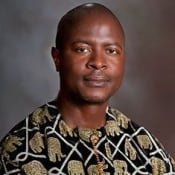
(1961 - )
Awgu, Enugu State, Nigeria
Areas of Specialization: Reparative Justice, Victimization of African Women in the Criminal Justice System
Biko Agozino is a Nigerian criminologist and author, and a founding member of the International governing council of the Centre for Democracy and Development in Lagos, Nigeria, and the criminology unit coordinator and professor of sociology at the University of the West Indies, St. Augustine, Trinidad and Tobago. He earned a B.Sc. in sociology from the University of Calabar, an M.Phil. from the University of Cambridge and a Ph.D. in criminology from the University of Edinburgh.
Agozino is best known for his book, Black Women and Criminal Justice System, in which he explores issues of gender, power, race and ethnicity within the criminal justice system. Another book, Counter-Colonial Criminology: A Critique of Imperialist Reason, is considered a vital read for any students and scholars within the field of criminology.
He has served as editor-in-chief of the African Journal of Criminology and Justice Studies and as a member of the editorial board of Jenda: A Journal of West African Women’s Studies and Culture. He has continued to study the exaggeratedly punitive justice systems of the United States, United Kingdom, South Africa and Russia, which appear to be making the problem of crime worse rather than discouraging it.
16.Karuppannan Jaishankar
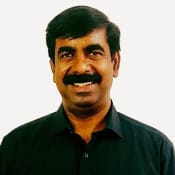
(1973 - )
Areas of Specialization: Cyber Criminology, Space Transition Theory
Karuppannan Jaishankar is the founder of cyber criminology as a subdiscipline of criminology, founder and president of the South Asian Society of Criminology and Victimology, co-founder of the Centre for Cyber Victim Counselling, the editor-in-chief of International Journal of Cyber Criminology, and a professor and head of the Department of Criminology at Rashtriya Raksha University. He earned a B.Sc. in biochemistry from the PSG College of Arts and Science, Bharathiar University, an M.A. in criminology and a PG Diploma in Geographic Information Systems Management from the University of Madras, and a Ph.D. in criminology.
Best known for his work in cyber criminology, cyber victimology and space transition theory, Jaishankar has published many works on the topic, including Cyber Criminology: Exploring Internet Crimes and Criminal Behavior, Interpersonal Criminology: Revisiting Interpersonal Crimes and Victimization, and his most recent work, Routledge Handbook of South Asian Criminology.
Internationally known for his expertise, Jaishankar is an International Ambassador for the British Society of Criminology and is a United Nations Expert on Victims of Terrorism. He has also organized three international conferences for the South Asian Society of Criminology and Victimology.
He was honored by the National Academy of Sciences in India, who awarded him their SCOPUS Young Scientist Award in Social Sciences in 2012.
17.Scott Decker

(1950 - )
Areas of Specialization: Gang Violence, Criminal Justice Policy
Scott Decker is the Foundation Professor of Criminology and Criminal Justice at Arizona State University and researcher in criminology. He earned a B.A. from DePauw University and an M.A. and Ph.D. from Florida State University.
After graduation, Decker took faculty positions at the University of Missouri–St. Louis and Arizona State University. He was also the Hindelang Lecturer at the University at Albany. He has focused his research on gangs, terrorist networks, deradicalization methods, violence adoption and desistance, group behavior, bioterrorism, violence and active offenders, and has authored 17 books and more than 130 research articles. Among these works are articles such as Life in the Gang, Family, Friends and Violence, Policing Immigrants: Local Law Enforcement on the Front Lines, Cut from the Same Cloth? A Comparative Study of Domestic Extremists and Gang Members in the United States, and Confronting Gangs: Crime and Community. In 2011, he was awarded the Bruce Smith Award from the Academy of Criminal Justice Sciences.
Decker was the Lead Investigator on a Start Research Project. This project, titled A Comparative Study of Violent Extremism and Gangs, took place between January 2015 and March 2019. He is a Fellow of the Academy of Criminal Justice Sciences and the American Society of Criminology.
18.Michael Tonry
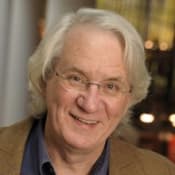
(1945 - )
Martinsburg, West Virginia, USA
Areas of Specialization: Criminal Law, Crime and Punishment
Michael Tonry was born in 1945 in Martinsburg, West Virginia. He earned his B.A. in history from the University of North Carolina at Chapel Hill, before going on to graduate with an L.L.B. from Yale University.
Tonry is a leading researcher in criminal law. He published a paper with colleague David P. Farrington, in which they compared an increase in incarceration, with a decrease in crime in the United States, to the trends of other countries. He has taken positions against mandatory sentencing minimums, arguing that the data does not support their continued use.
He has written multiple books, including Malign Neglect: Race, Crime and Punishment in America and The Handbook of Crime and Punishment. He has previously served as president of the European and American Societies of Criminology and has been named a senior fellow in the Netherlands Institute for the Study of Crime and Law Enforcement.
Now, he is founder and editor of Crime and Justice - A Review of Research. He is the McKnight Presidential Professor of Criminal Law and Policy and a Scientific Member of the Max Planck Institute on Comparative and International Criminal Law. He is also the director of the Institute of Crime and Public Policy at the University of Minnesota.
19.Matthew Barnett Robinson
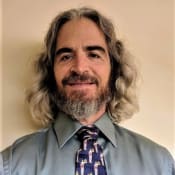
(1970 - )
Fort Lauderdale, Florida, USA
Areas of Specialization: Criminological Theory, Crime Prevention, Capital Punishment, US Drug Control Policy, Justice Theory
Matthew Barnett Robinson is a full professor and criminologist for Appalachian State University in North Carolina. He earned his Ph.D. from Florida State University. His research interests have included social justice, race and crime, criminological theory, the death penalty, the “war on drugs”, crime mapping and white-collar crime. He has published more than twenty books, including The Drug Trade and the Criminal Justice System, Crime Mapping and Spatial Aspects of Crime: Theory and Practice, Death Nation: The Experts Explain American Capital Punishment, and Greed is Good: Maximization and Elite Deviance in America.
He studied the use of the capital punishment in North Carolina, publishing a report titled, “The Death Penalty in North Carolina: A Summary of the Data and Scientific Studies”. He found that the death penalty was not an effective deterrent and was more costly than life imprisonment.
He also challenged existing notions informing national drug policy, exposing the inconsistencies in data analysis and reporting by the Office of National Drug Control Policy.
Robinson has been a vocal opponent of the USA Patriot Act, which he feels contains unconstitutional provisions that infringe on the rights of individual citizens. He has been working to create a Center for Social Justice and Human Rights at Appalachian State University.
20.Anthony Walsh
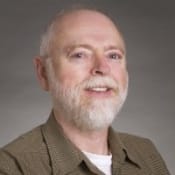
(1941 - )
Areas of Specialization: Love and Criminal Behavior, Law Enforcement
Anthony Walsh is a former law enforcement officer and professor at Boise State University. He earned a B.A. in sociology from Eastern Michigan University, an M.A. in medical sociology from the University of Toledo, and a Ph.D. in criminology from Bowling Green State University.
During his time working as a probation officer, he noticed that love seemed to play an outsized role in the circumstances of his parolees. He began to research the correlations of love and criminal behavior, publishing a book titled, The Science of Love: Understanding Love and Its Effects. His other works include Human Nature and Love: Biological, Intrapsychic, and Social-Behavioral Perspectives.
He is a member of the American Society of Criminology, the Biosocial Criminology Association, New York Academy of Sciences, and the National Sheriff’s Association. He has written or co-written several textbooks as well, including Criminology: The Essentials, Essential Statistics for the Social and Behavioral Sciences: A Conceptual Approach, and Corrections: From Research, to Policy, to Procedure.
He is a Consulting Editor for the Journal of Ideology and Associate Editor for the Frontiers in Evolutionary Sociology and Biosociology. He has delivered guest lectures on sex hormones and delinquency; genes, environment, and criminality; synaptogenesis and myelination in the adolescent brain.
21.David Wilson

(1957 - )
Sauchie, Clackmannanshire, Scotland
Areas of Specialization: Prisons and Imprisonment, Murder and Serial Murder, Media Representations of Crime and Punishment
David Wilson is a professor emeritus of criminology at Birmingham City University. He studied at the University of Glasgow and Selwyn College at Cambridge before earning his Ph.D. from the University of Cambridge’s Institute of Criminology.
Soon after graduating college, he joined Her Majesty’s Prison Service as an Assistant Governor. He is said to have become the youngest governor in the country. In his early years working for the corrections system, he worked at HM YOI Huntercombe, HMP Grendon, HMP Woodhill and HMYOI Finnamore Wood. He went on to become Head of Prison Officer and Operational Training for the Prison Service, which placed him in a leadership role at the national level. After visiting prisons in Albania, he resigned from Her Majesty’s Prison Service, in protest against what he felt were inhumane prison conditions in the UK.
He is the author of more than a dozen books on criminal justice, including Serial Killers: Hunting Britons and Their Victims 1960-2006, Pain and Retribution: A Short History of British Prisons 1066 to the Present, and Mary Ann Cotton: Britain’s First Female Serial Killer. His most recent book, My Life with Murderers: Behind Bars with the World’s Most Violent Men, was published in 2019.
Today, Wilson is a frequent commentator for the press on criminal issues, and still provides consultation for active investigations.
22.Mary Francesca Bosworth

(1971 - )
Areas of Specialization: Gender, Punishment, Citizenship, Race, Prisons, Immigration Detention
Mary Francesca Bosworth is the UK Editor-in-Chief of the journal Theoretical Criminology, a Professor of Criminology at the University of Oxford, and a Professor of Social Sciences from Monash University. She studied the arts at the University of Western Australia before earning an M.Phil and a doctorate in criminology from the University of Cambridge.
Her research interests included race, gender and imprisonment. She has written books about her field of expertise, including Engendering Resistance: Agency and Power in Women’s Prisons and Explaining U.S. Imprisonment, which was co-written with Carolyn Hoyle. She takes a comparative approach to her research, studying imprisonment throughout Australia, Greece, the U.K., France, and the United States.
Her work on immigration detention has received funding from organizations such as the European Research Council, the Nuffield Foundation, and the British Academy. She is co-editor of Routledge Studies in Criminal Justice, Borders and Citizenship. Among her other published works are Encyclopedia of Prisons and Correctional Facilities and Borders of Punishment: Migration, Citizenship and Social Exclusion, which was written with Katja Aas in 2013.
She is a Fellow of St. Cross College at the University of Oxford. Her most recent publications include “Affect and authority in immigration detention”, published in 2019, and “Blurred lines: Detaining asylum seekers in Britain and France”, published in 2020.
23.Lonnie Athens
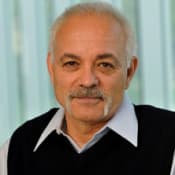
(1949 - )
Richmond, Virginia, USA
Areas of Specialization: Criminology, Domination, violence & conflict, Naturalistic Methods
Lonnie Athens was born in Richmond, Virginia. He earned a B.S. from Virginia Tech, an M.S. from University of Wisconsin–Madison, and a D.Crim from the University of California, Berkeley.
Athens is best known for his Theory of Violentization, which consists of Four Stages. The stages, Brutalization, Belligerancy, Violent Performances, and Virulency, are a continuum on which violent behavior develops over time. he has written several books about violence, including The Creation of Dangerous Violent Criminals and Violent Criminal Acts and Actors: A Symbolic Interactionist Study. He was the winner of the George Herbert Mead Award for Career Achievements from the Society for the Study of Symbolic Interaction and Scholar of the Year Award for Physical and Social Scientists by Seton Hall University.
He has been a member of the Scientific Committee for the International Society for Psychology and Law since 2008 and the advisory editor for the Journal of Contemporary Ethnography since 2010. He is a professor of criminal justice at Seton Hall University. Even as an academic, he has remained active in the criminal justice system, serving as an expert witness and consultant. He has also had three books written about him and his work on violentization theory.
24.Shaun L. Gabbidon
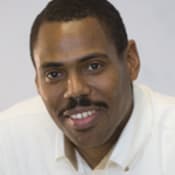
( - )
Areas of Specialization: Criminology, Race and Crime
Shaun L. Gabbidon was born in England. He earned a Ph.D in Criminology from Indiana Indiana University of Pennsylvania.
His first book, The Criminological Writings of W.E.B. DuBois: A Historical Analysis, provided important insights into W.E.B. DuBois’ research regarding crime in the United States - as it pertained to the experience of African Americans - and how DuBois foreshadowed later research findings in the area of criminology. He is also known for his book, Criminological Perspectives on Race and Crime, in which he critically examines and evaluates the theories of criminologists such as Biko Agozino and J. Phillippe Rushton.
Gabbidon is a former professor at the Center for Africana Studies at the University of Pennsylvania and has been named a fellow at Harvard University’s W.E.B. DuBois Institute for Afro-American Research. The Division on People of Color and Crime of the American Society of Criminology have twice honored Gabbidon. He was honored with the 2015 Julius Debro Award and the 2016 Outstanding Teaching Award.
Today, he is a Distinguished Professor of Criminal Justice at the Pennsylvania State University Harrisburg, School of Public Affairs—only the second individual in the history of Penn State to receive such an honor. He is also editor of Race and Justice: An International Journal.
25.David P. Farrington
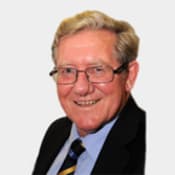
(1944 - )
Ormskirk, Lancashire, England
Areas of Specialization: Criminology, Psychology
David P. Farrington was born in 1944 in Ormskirk, Lancashire, England. He earned his B.A., M.A., and PhD in psychology from University of Cambridge. Farrington has focused on the long-term development of criminal behavior. Most notably, he conducted a 24-year study of 411 boys in London, England. He has also explored interventions to prevent criminality, as well as how upbringing, geography, and socioeconomic status correlate to the development of criminal impulses or behaviors.
Farrington has served as president of multiple societies and associations related to criminal justice, including the British Society of Criminology, the Academy of Experimental Criminology, and the American Society of Criminology. He was knighted by the queen in 2003, received the Stockholm Prize in Criminology in 2013 and was honored with the Thorsten Sellin-Sheldon and Eleanor Glueck Award, and the August Vollmer Awards.
He is a Leverhulme Trust Emeritus Fellow and emeritus professor of psychological criminology at the University of Cambridge. He was chair of the American Society of Criminology’s Division of Experimental Criminology from 2015 to 2016. He has published nearly 800 articles in his career, as well as over 100 books. His most recently published works include Communities That Care and the Handbook of Crime Correlates, both published in 2019.
Honorable Mentions in Criminology
- JC Barnes, University of Cincinnati
- Alfred Blumstein, Carnegie Mellon University
- John Braithwaite, Australian National University
- Ronald V. Clarke, Rutgers University
- David Theo Goldberg, University of California at Irvine
- Herman Goldstein, University of Wisconsin, Madison
- Friedrich Losel, University of Erlangen-Nuremberg
- Terrie Moffitt, Duke University
- Nicole Leeper Piquero, University of Miami
- Henry Pontell, City University of New York
- Adrian Raine, University of Pennsylvania
- Peter Reuter, University of Maryland
- Frank Schmalleger, University of North Carolina at Pembroke
- Cassia Spohn, Arizona State University
- Richard Tremblay, University of Montreal
- Martin Guevara Urbina, Sul Ross State University/Rio Grande College